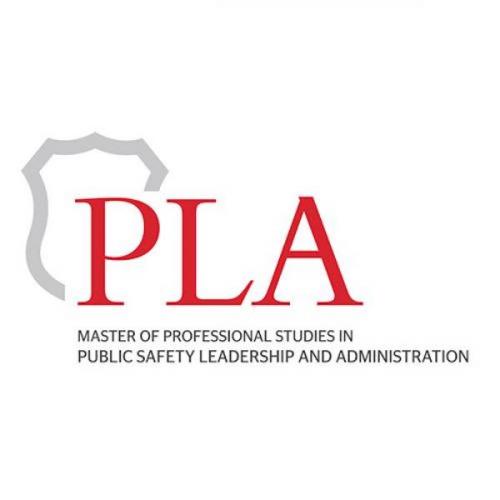An innovative new online master’s degree program developed jointly by the University of Maryland Francis King Carey School of Law in Baltimore and the College of Behavioral and Social Sciences will prepare public safety officials for careers in a rapidly changing landscape.
The Master of Professional Studies in Public Safety Leadership and Administration (PLA) places emphasis on teaching students how to mitigate and solve various types of problems that may arise in organizations. While working toward the master’s degree, students will earn two graduate certificates—one in Criminal Justice Administration and one in Leadership in Diverse Organizations. Both the graduate certificates and the Master’s degree can be completed in 18 months. All courses are online to give students flexibility, as many who enroll are likely to be working professionals. The program offers advanced classes in leadership and ethics from other public safety professionals and provides students with the tools to address problems related to diversity and patterns of discrimination. Students will be trained on evaluating organizations for best practices, implementing policies that impact capacity to lead organizations, and understanding social interaction and human behavior to solve complex problems.
The curriculum is a response to a growing need for advanced training in leadership, policy, and law for police, public safety officials and other public servants. Courses including Ethics in Criminal Justice, Building Partnerships with Criminal Justice Agencies and Public Image Management and Policy Solutions will be taught by sociologists, criminologists and law professors from both institutions.
One of the strengths of the program is its emphasis on data-driven decision making. Given the enormous regional variations in police departments and other public safety organizations, there can be no one-size-fits-all policy solution for a given problem. PLA instructors teach students how to evaluate, identify, and address problems that are unique to particular organizations.
The second strength is students of the PLA program have access to cutting-edge implicit bias training technologies. Research demonstrates that all people, irrespective of their profession, carry implicit, or unconscious, biases. These biases impact the way public safety professionals interact with members of the public, and in the context of policing, such biases can lead to an unnecessary use of lethal force. Students will have the opportunity to use virtual reality technology to immerse themselves in realistic scenarios related to their work, providing them with a safe yet realistic way of examining and challenging many of their own unconscious biases.
As a result, a student who successfully completes this degree will be able to evaluate their organization, provide innovative recommendations, rationally evaluate data and statistics, and more deftly manage interpersonal conflict. The graduate will gain invaluable tools and resources necessary to excel in the field of law enforcement. They will be more fully aware of their and others biases which will allow them to mitigate problems and offer twenty first century solutions to their organization.
For more information about the program, please visit the website (https://www.marylandpla.com/), or email the program director, Lester Andrist (landrist [at] umd.edu).
Complete program information can also be found below.
Note that students who have not been admitted to the PLA program but are funded as UMD GRAs or GAs in other programs are welcome to register for PLA classes. However, these students may need to apply for a waiver here: Waiver form link.



